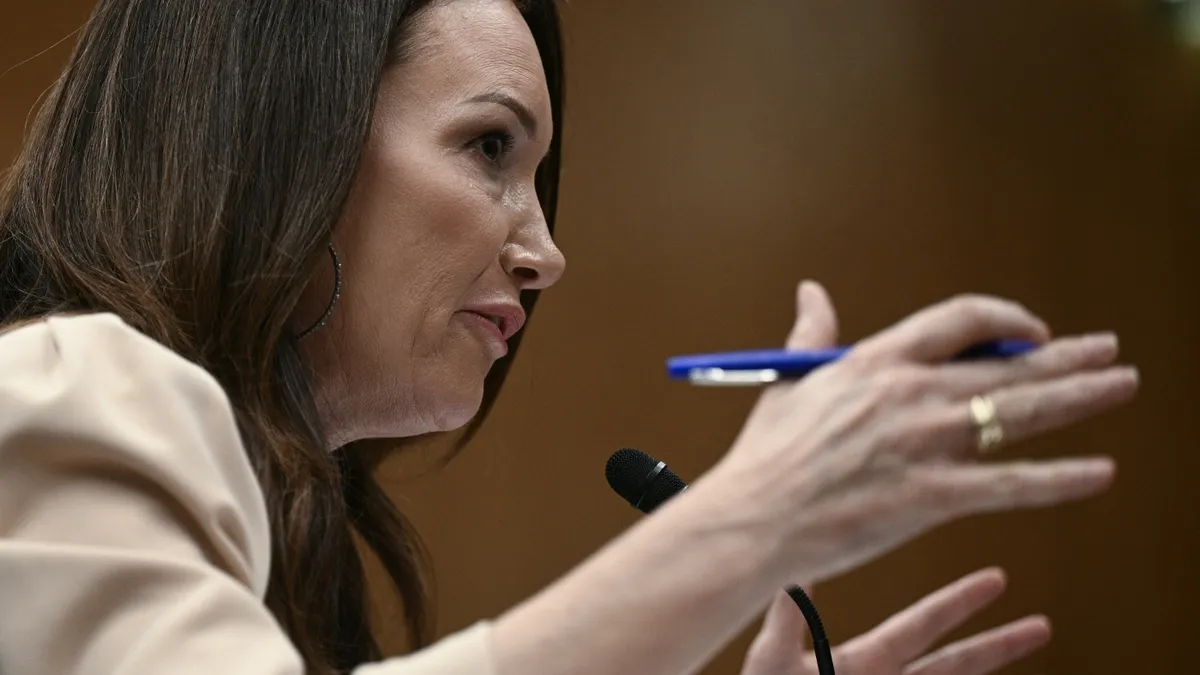
In recent testimony before the Senate Appropriations Committee, Secretary of Agriculture Brooke Rollins shed light on the current staffing challenges faced by the U.S. Department of Agriculture (USDA). The USDA is actively working to fill critical positions after agreeing to pay over 15,000 employees' salaries and benefits through September in exchange for their resignations. This move has sparked discussions on the implications of letting go experienced staff while simultaneously seeking to recruit new talent.
Rollins confirmed that the USDA is among the federal agencies that have utilized the deferred resignation program to downsize the workforce. This program was first introduced in late January, offering nearly the entire federal workforce an opportunity to resign voluntarily. A second invitation was issued in April for a limited time. The Trump administration has heavily relied on this program as part of its strategy to reduce the federal workforce significantly.
The decision to downsize while simultaneously recruiting has led to questions from lawmakers, including Senator Patty Murray of Washington, who pointedly asked Rollins about the rationale behind letting experienced employees go only to seek new hires for the same positions. Rollins acknowledged the situation, explaining that while 15,000 resignations represent less than 15% of the USDA's workforce, the department typically loses between 8,000 to 10,000 employees annually due to attrition.
In an effort to address staffing shortages, Rollins extended an invitation to some of those who took the deferred resignation offer to return to their former roles. "If they want to come back, and if they were in a key position, then we would love to have that conversation," she stated during the hearings.
Shortly after the departures of employees from the USDA's Animal and Plant Health Inspection Service (APHIS), an email was sent to remaining staff, inviting them to apply for 73 open positions, including some newly vacated roles. This development angered one former employee who had opted for the deferred resignation, as they had felt pressured to resign due to impending layoffs. This individual requested anonymity for fear of retaliation while on paid administrative leave.
During her testimony, Rollins acknowledged that while some mistakes may have occurred during this transition, the USDA is committed to a focused approach in addressing staffing issues. "Have we done it perfectly? No. Any type of wholesale change and big effort to realign an entire government agency is difficult," she commented, emphasizing the department's ongoing efforts to improve the situation.
On Wednesday, Rollins clarified that no employees from APHIS had been allowed to accept the deferred resignation program in April. However, her statements conflict with accounts from an APHIS employee who claimed to have been part of the resignation process. This employee, who also remains anonymous due to concerns over retaliation, described stressful conditions as IT staff managed the influx of technology returned by departing employees.
Armando Rosario-Lebron, a vice president with the National Association of Agriculture Employees, indicated that several hundred members from APHIS' Plant Protection and Quarantine program might have accepted the deferred resignation offer in April. The USDA has yet to respond to inquiries regarding the discrepancies between Rollins' testimony and the accounts from former employees.
The ongoing staffing challenges at the USDA, highlighted by Secretary Brooke Rollins' testimony, underscore the complexities of managing a federal workforce amidst significant downsizing efforts. As the department seeks to fill critical positions while addressing concerns from both current and former employees, it remains a pivotal moment for the USDA's future operations.